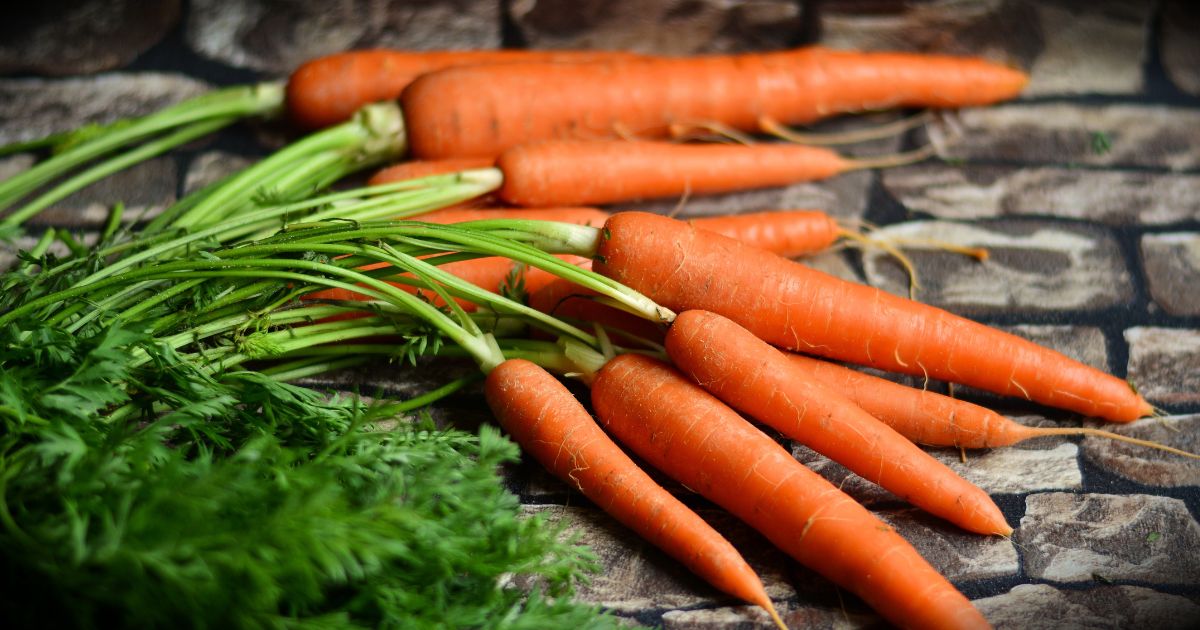The Top 8 Reasons We Want To Eat Carrots: From Anemia To Early Pregnancy
Maybe the crunch, the sweetness, or just the vibrant color catches your eye in the produce aisle. Have you ever wondered, “Why Am I Craving Carrots”? What makes me so drawn to this simple yet complex vegetable? Why carrots, of all things? As it turns out, there’s more to this root vegetable than meets the eye (or the taste buds!).
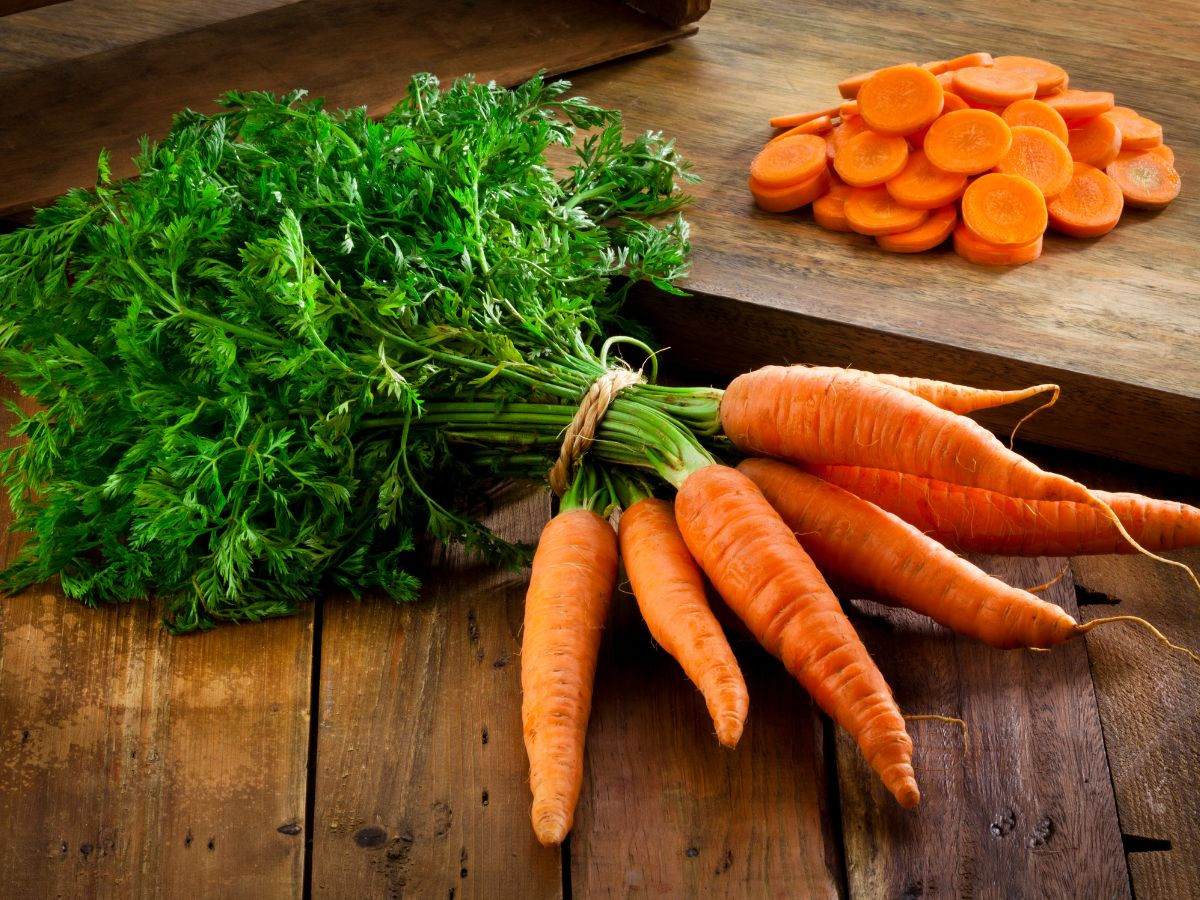
It’s not just any ordinary veggie; it’s a source of endless culinary inspiration, a key ingredient in many of my dishes, and, yes, even a favorite carrot treat for my dogs. But why do we find ourselves on the cusp of a carrot addiction?
Carrots have been cultivated for thousands of years, with their origins traced back to Central Asia. Originally purple or yellow, the Dutch developed the orange variety we know and love today.
From pregnancy cravings to the raw crunch of veggies we all love, and even in the complex world of dietary needs like those presented by anemia, carrots are more than just a staple in stews, salads, and soups.
Whether munching raw carrots, making carrot juice for beta carotene health kick, or grating them into a cake, there’s more to this excessive carrot eating than you might think.
Table of Contents
Why Am I Craving Carrots?
It’s time to peel back the layers and discover eight major reasons carrots are more than just a crunchy snack or a side dish.
1. While Pregnant and Early Pregnancy
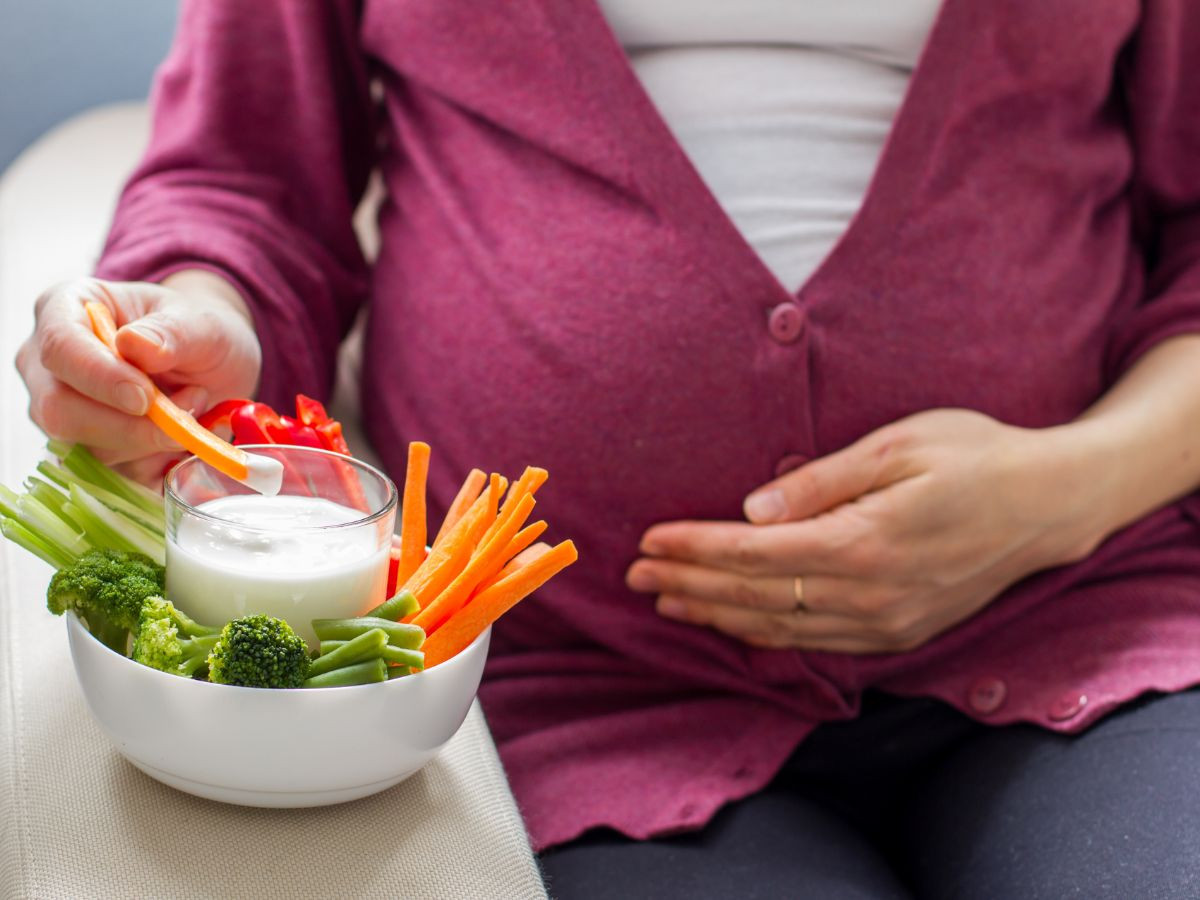
With pregnancy changes come cravings, like an unexpected midnight call for… carrots? Absolutely! Let’s chew over why these orange beauties become the stars of our first-child pregnancy tales.
Nutritional Spotlight: Carrots are like nature’s prenatal vitamin. Packed with Vitamin A, essential for a baby’s developing eyes, skin, and immune system, it’s no wonder our bodies nudge us towards them. But remember, moderation is key; too much Vitamin A over a year isn’t ideal.
Hormonal Rollercoaster: Hormones do pretty wild things during pregnancy, including changing our taste preferences. Suddenly, the crunch and sweetness of a carrot might seem like the best thing ever.
The Crunch Factor: There’s something immensely satisfying about the crunch of a raw carrot. During pregnancy, this can be even more appealing, possibly because it helps with the nausea that comes with morning sickness.
Chef’s Tip: If you’re pregnant, craving carrots, and don’t want to leave your stomach upset try different ways to enjoy them. Raw sticks for a crunchy snack, roasted with a drizzle of honey for a sweet treat, or even in a cake – because you’re eating for two, and a little indulgence is more than okay!
2. The Lure of Eating Raw Carrots
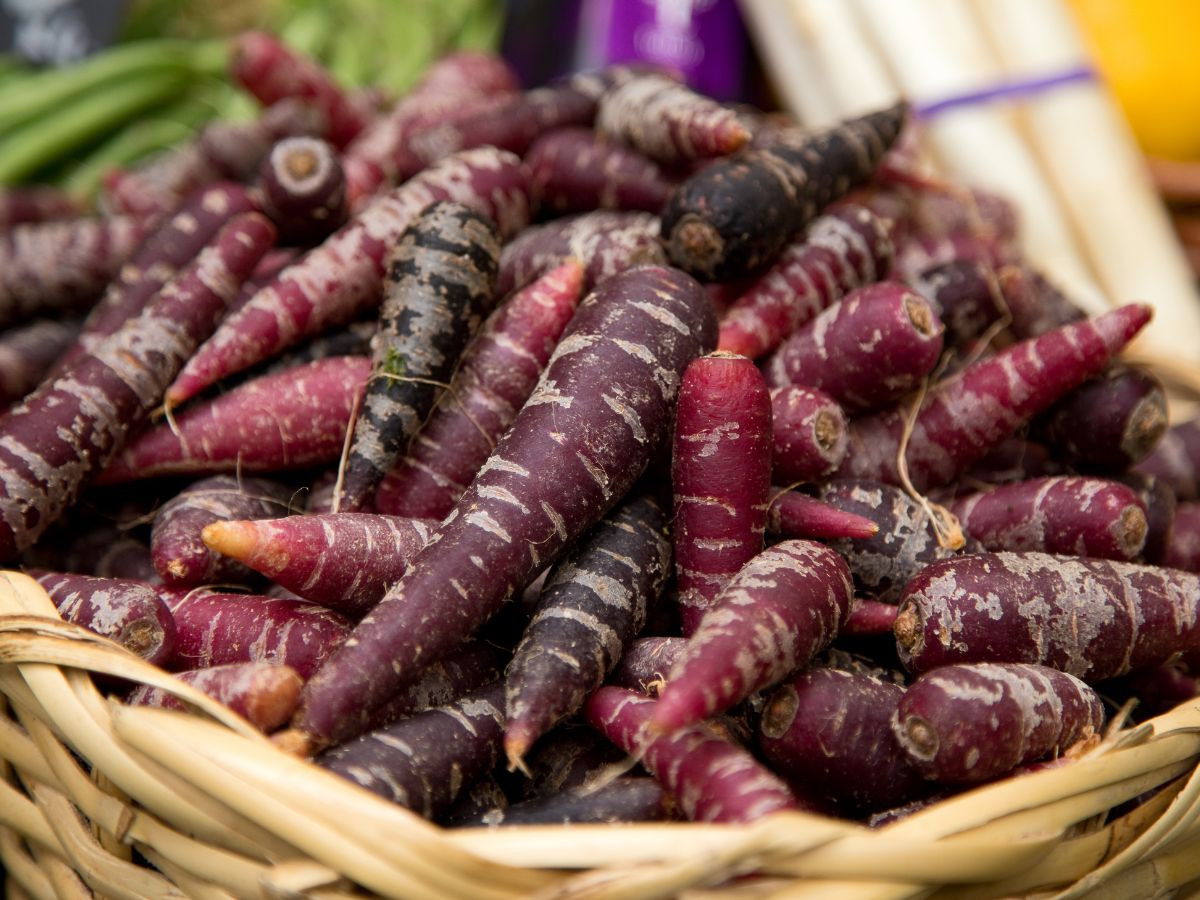
Why do we often reach for a crunchy carrot stick instead of a slice of apple or a handful of nuts? Let’s dive into the crunchy appeal of raw carrots.
Texture and Satisfaction: As a chef, I’ve observed that eating is more about texture than flavor. The satisfying crunch of a raw carrot is almost therapeutic. It’s like nature’s stress ball but for your mouth!
Nutritional Powerhouse: When you munch on a raw carrot, you get the whole package – fiber, vitamins, and minerals, all in their uncooked, unaltered state. This means more good stuff like Vitamin A, potassium, and antioxidants that help keep your body in tip-top shape.
Easy and Convenient: Let’s not forget that raw carrots win big on convenience. Wash, peel (or not), and you’re good to go. As a busy chef, I often snuck on carrot sticks between meal preps – they’re the perfect quick, healthy snack.
Chef’s Tips and Tricks:
Keep them Fresh: Store your carrots in water in the refrigerator to keep them crunchy and fresh.
Flavor Pairings: Raw carrots pair beautifully with dips like hummus or tzatziki. They also add a fantastic crunch to salads.
Health Note: While carrots are healthy, they’re best enjoyed as part of a varied diet. Too many, and you might find yourself turning a bit orange – no joke!
3. Carrots and Anemia
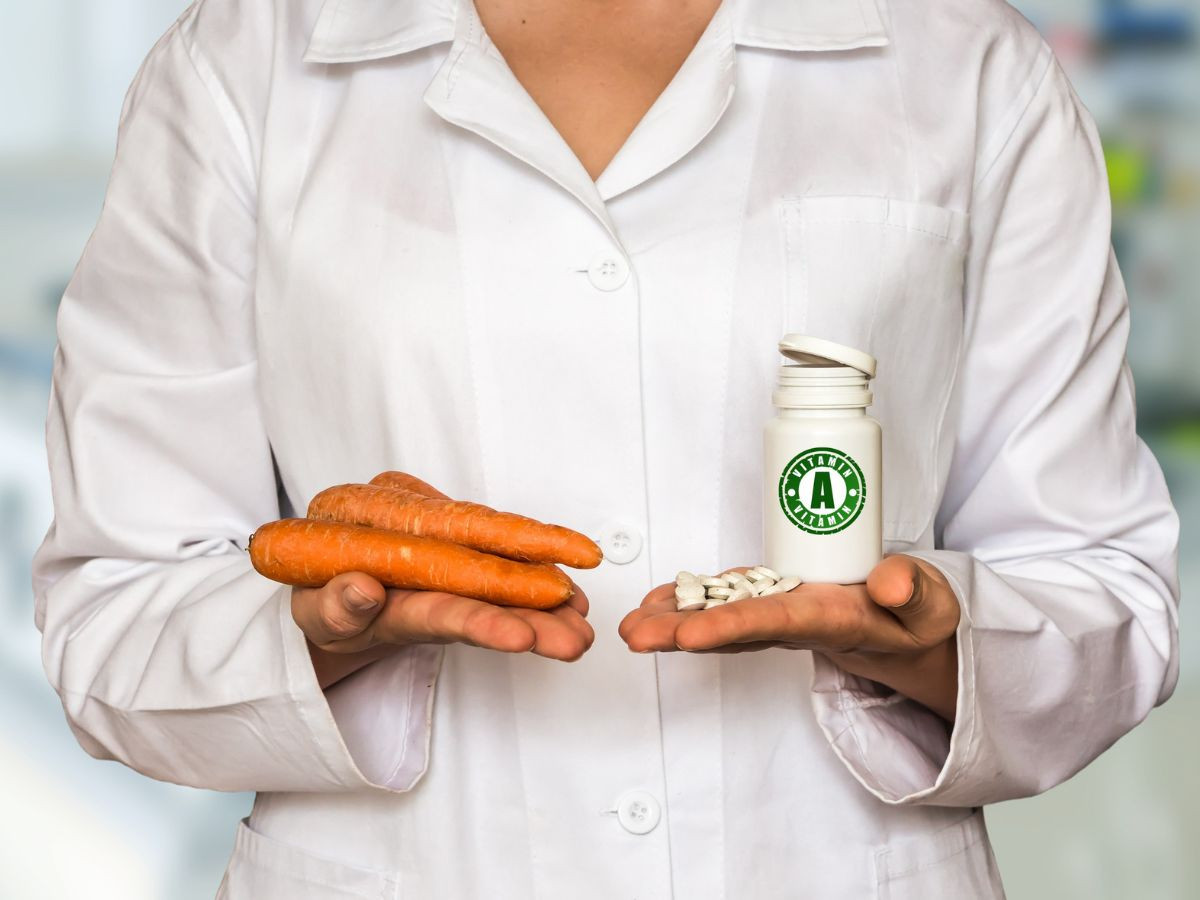
When it comes to anemia, a condition marked by a lack of healthy red blood cells, diet plays a crucial role. Let’s unravel how this root vegetable fits into the anemic diet puzzle.
Iron Absorption: Carrots are not high in iron, but they are champions at enhancing iron absorption thanks to their vitamin C content. Pairing them with iron-rich foods like spinach or red meat can be a game-changer for anemia sufferers.
Beta-Carotene Benefits: Carrots are rich in beta-carotene, which our bodies convert to Vitamin A. This nutrient is essential for a healthy immune system and plays a role in red blood cell formation.
Easy Incorporation in Diet:
Juices and Smoothies: Carrot juice, especially when combined with a bit of citrus-like orange juice, can be a delicious way to enhance iron absorption.
Salads and Sides: Grated or thinly sliced carrots make a great addition to iron-rich salads.
Soups and Stews: Adding baby carrots to soups and stews is an easy way to get nutritional benefits in a warm, comforting meal.
Chef’s Note on Balance: Remember, managing the rare condition of anemia isn’t just about one food but a balanced diet. Carrots are a fantastic addition but work best alongside various iron-rich foods and other vitamins and minerals.
4. Emotional and Stress-Related Cravings
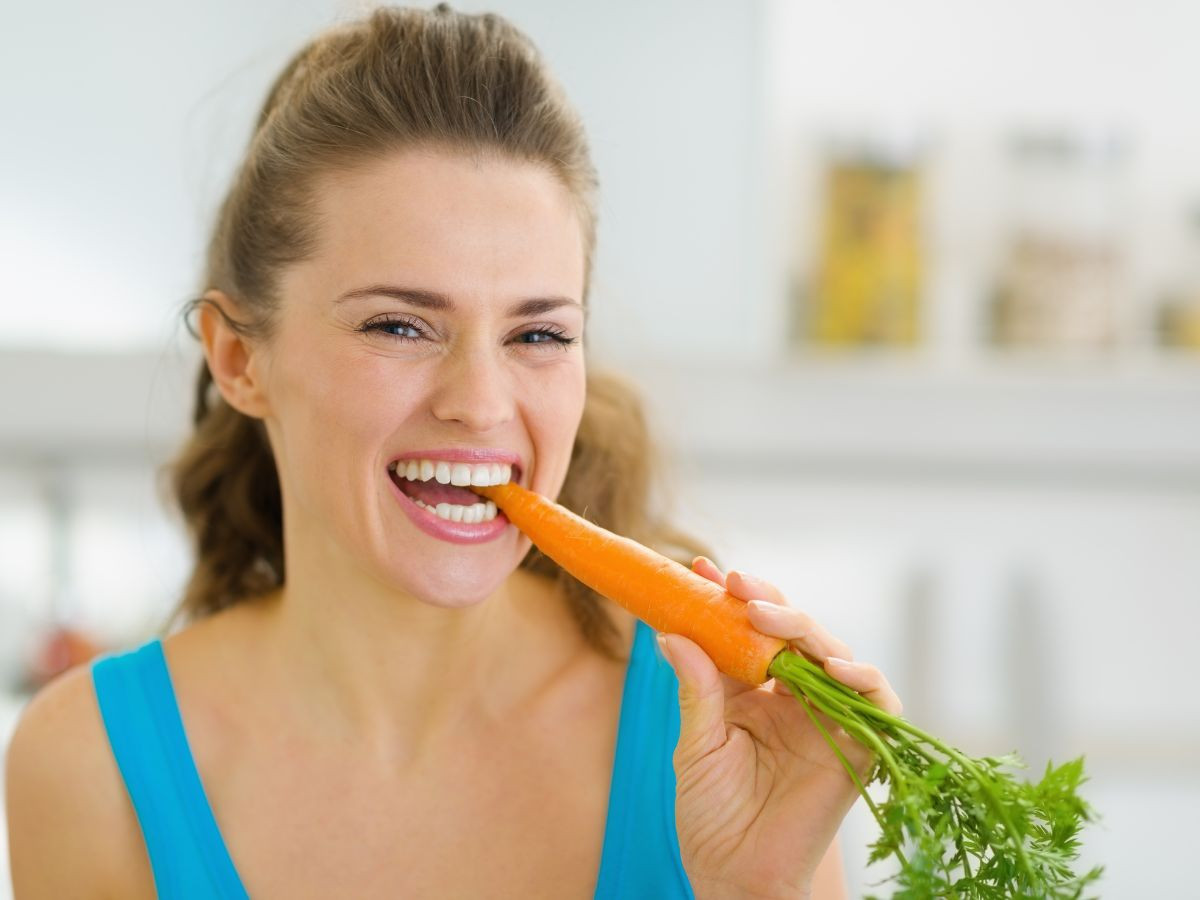
Now, let’s nibble on a different aspect of carrot cravings – the emotional and stress-related side. I’ve seen firsthand how our moods and emotions can steer our food choices with a few of my cigarette-smoking chef friends. Craving carrots might seem odd, but there’s more to the psychological dependence than meets the eye.
Comfort Food Connection: Carrots often find their way into comfort foods – hearty stews, warm soups, and even tomato sauce. During stressful times, we might crave these dishes for their taste and the emotional warmth they provide.
Healthy Stress-Busting: When stressed, many of us lean towards unhealthy snacks. Carrots offer a guilt-free alternative. Their crunchiness can be particularly satisfying, providing a physical way to work through stress or anxiety. It’s like crunching away your worries!
Mindful Snacking:
Snack Prep: For a quick, healthy snack, keep carrot sticks or baby carrots handy. Their natural sweetness and satisfying crunch make them ideal for stress-induced hunger pangs.
Creative Cooking: Experiment with carrots in your cooking. Trying out new recipes can be a therapeutic and rewarding way to relieve stress.
Remembering Balance: While carrots are great, relying solely on any food for emotional comfort can be problematic. Addressing the root cause of this neurological disturbance and seeking a balanced diet alongside healthy coping mechanisms are important.
5. Carrots as a Diet Staple
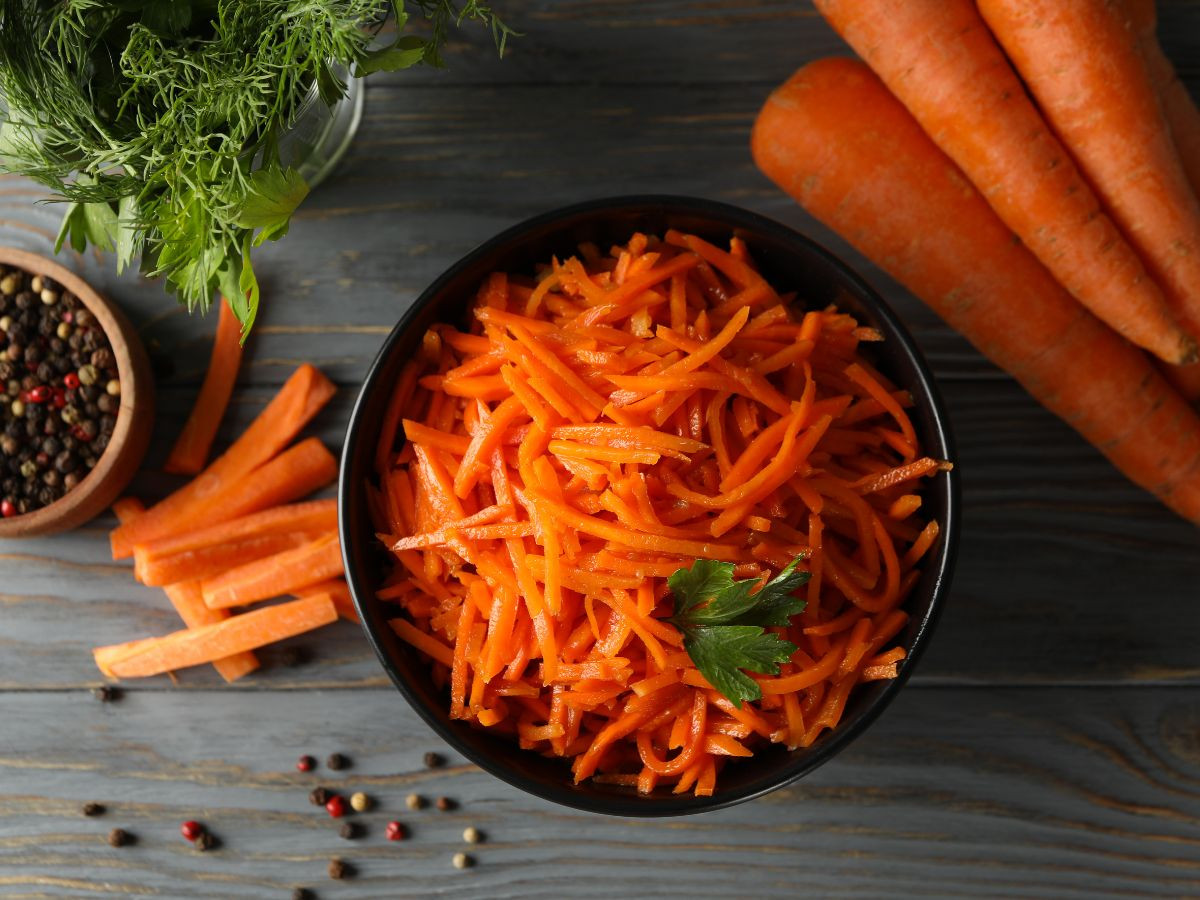
Let’s talk about carrots as a regular part of our diets. As a chef who loves playing around with flavors and textures, I’ve observed that sometimes, the foods we eat often become the foods we crave, and the foods we eat often become the ones associated. Carrots are no exception to this rule.
Habitual Eating: When carrots become a staple in your diet, your body starts expecting them. It’s like they become a part of your culinary routine. Whether a daily snack or a regular side dish, the body associates carrots with nourishment and satisfaction.
Versatility in Cooking: Carrots become a diet staple because of their incredible versatility. Raw, roasted, steamed, or boiled – there’s no end to how you can prepare them. This versatility keeps them interesting and keeps us coming back for more.
Personal Experience as a Chef: I’ve experimented with carrots countless times during my culinary journey. From simple roasted carrots with a touch of thyme to elaborate carrot soufflés, their adaptability in recipes always amazes me. This versatility is probably why they find a special place in our kitchens and, subsequently, our cravings.
Incorporating Carrots into Daily Meals:
Snacks: Carrot sticks with hummus or a yogurt dip are a great mid-day snack.
Sides: A simple side of glazed carrots can elevate any main course.
Main Dishes: Grated carrots are excellent in stir-fries, casseroles, and even as a taco filling.
A Note on Nutritional Balance: While carrots are healthy, remember the importance of a varied diet. Different colors and types of vegetables offer different nutrients, so mix it up!
6. Sensory Satisfaction: Crunchy Texture and Sweet Taste

Ever wonder why biting into a crunchy carrot feels so satisfying? There’s a sensory adventure behind every carrot craving, a symphony of texture and taste that makes this vegetable a frequent guest in our snack times and meals.
Crunch Factor: As a chef, I’m fascinated by how texture impacts our eating experience. The crispness of a carrot isn’t just pleasing to bite into; it’s almost cathartic. It’s like each crunch is a tiny moment of culinary joy.
Sweetness Appeal: Carrots are naturally sweet, especially when fresh and in season. This sweetness is a subtle call to our innate preference for sugary tastes, making carrots a healthy way to satisfy sweet cravings.
Tips for Maximizing Sensory Enjoyment:
Freshness is Key: Fresh carrots are crunchier and sweeter. Store them properly to maintain their texture and flavor.
Roasting to Enhance Sweetness: Slow-roasting carrots can intensify their natural sugars, making them even more appealing.
Texture Contrast in Dishes: Combine carrots with softer dish ingredients for a satisfying texture contrast.
7. Nutritional Deficiencies: Lacking Nutrients Might Trigger Carrot Cravings
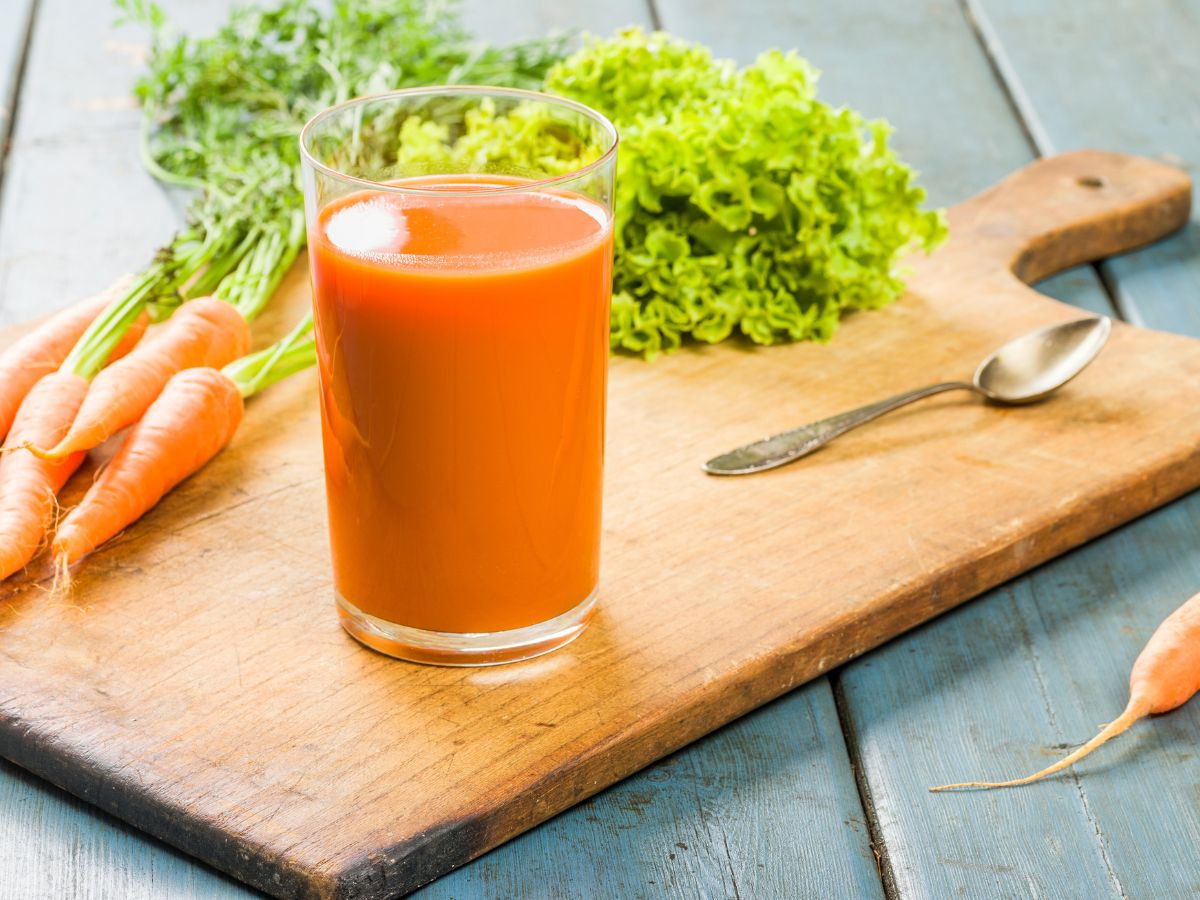
Sometimes, our bodies are smarter than we give them credit for, especially regarding cravings. Craving carrots can be your body’s subtle way of saying it needs certain nutrients that carrots are rich in.
Beta-Carotene and Vitamin A: Carrots are famous for their beta-carotene content, which our body converts into Vitamin A. This vitamin is essential for good vision, skin health, and immune function. If your body lacks this nutrient, it might send you carrot-craving signals.
Fiber Fix: Our bodies also need a good amount of fiber for healthy digestion. Carrots, being fiber-rich, can be a craving when your diet lacks adequate fiber. As someone who’s always experimenting with food, I’ve noticed that my body automatically starts hinting at a carrot or two when I’m on a low-fiber diet.
Balancing Your Diet:
Listen to Your Body: If you’re craving carrots often, it might be worth considering what your diet might be lacking.
Diverse Diet: Incorporate a variety of fruits and vegetables to ensure you get a wide range of nutrients.
Consult a Professional: If cravings are persistent or accompanied by other symptoms, it’s always a good idea to consult a dietitian or a doctor.
Remembering Variety: Carrots and broccoli are fantastic but just one piece of the nutritional puzzle. Ensure your diet is varied to get all the nutrients your body needs.
8. Health Benefits of Carrots: A Chef’s Nutritional Guide
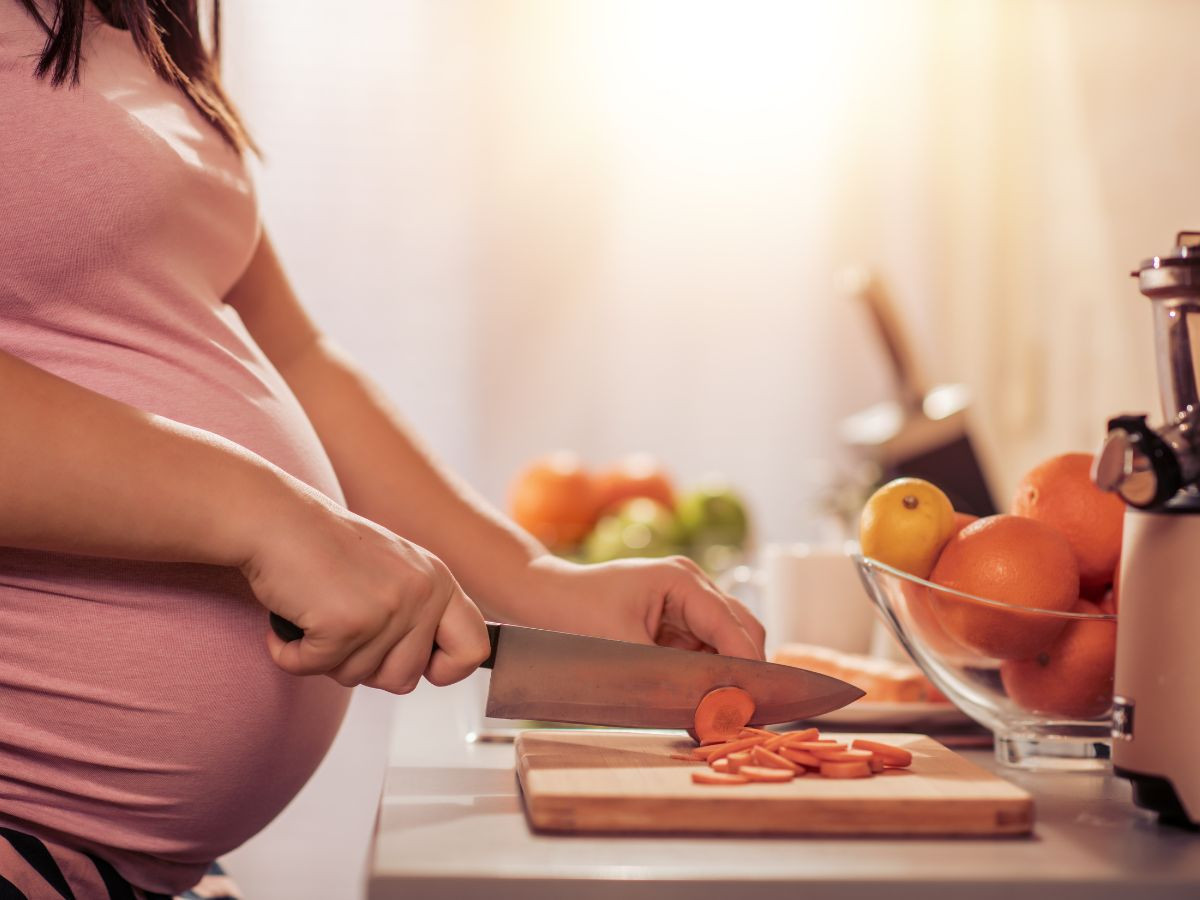
I’ve always been fascinated by how food tastes and how it nourishes our bodies. Carrots, in particular, are a nutritional powerhouse that deserves a spotlight.
Eye Health: Carrots are famous for their role in eye health, thanks to the high levels of beta-carotene converted into vitamin A in the body. Vitamin A is crucial for preventing night blindness and maintaining healthy vision.
Skin and Immune System: The antioxidants in carrots, including vitamin C, boost your immune system and help keep your skin healthy. These boost your immune system, and antioxidants fight free radicals, reducing the signs of aging.
Reducing Cancer Risks: Studies have suggested that carrots may offer protective effects against certain types of cancer thanks to their antioxidant properties.
Chef’s Healthy Cooking Tips:
Maximize Nutrition: To retain the most nutrients, cook carrots whole and then chop them. Steaming or roasting can also help preserve vitamins.
Incorporate in Diverse Ways: Use carrots in various forms – raw in salads, juiced for drinks, cooked in stews, or baked goods.
Pairing for Nutrient Absorption: Pair carrots with a fat source, like olive oil or nuts, to maximize the absorption of beta-carotene.
Concluding The Mystery Behind Carrot Cravings
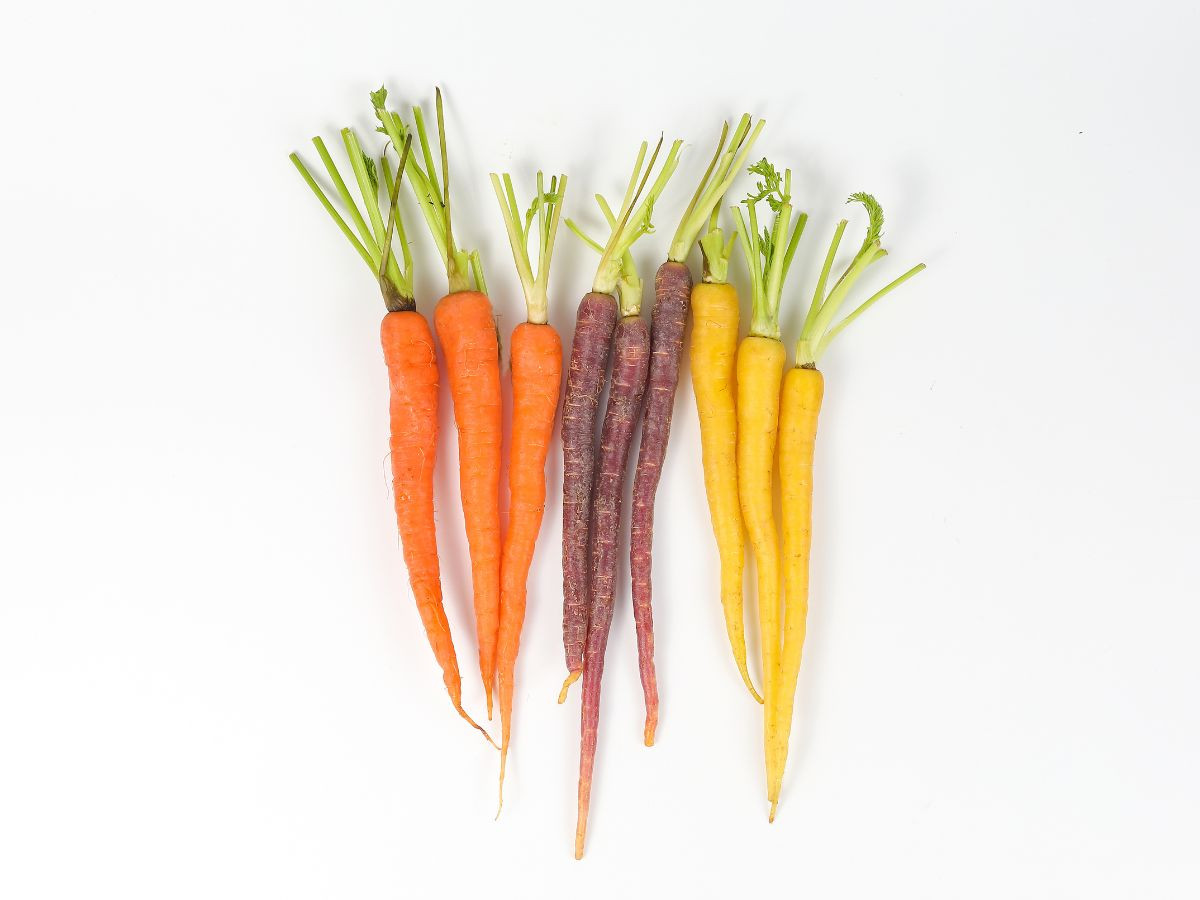
As we reach the end of our carrot-filled journey, it’s time to circle back to our initial question: “Why am I craving carrots?” As we’ve discovered, the answer to Carrots’ unique texture and natural sweetness is multi-faceted, blending nutritional needs, emotional responses, dietary habits, and sensory pleasures.
Nutritional Signals: Often, our bodies crave what they need. Carrots, rich in beta-carotene, fiber, and vitamins, might be your body’s way of signaling a need for these nutrients. Whether it’s a boost in vitamin A for eye health, fiber for digestion, or antioxidants for overall well-being, carrot cravings can be a sign of iron deficiency or what your body lacks in your daily diet.
Emotional and Stress-Related Factors: Our cravings for more carrots can be deeply tied to our emotional state. The comfort of a carrot’s crunch or its presence in our favorite comfort foods can be a soothing response to stress and emotional upheavals.
Habitual Consumption: Sometimes, we crave what we’re used to eating. If carrots are a staple in your diet, your body might naturally lean towards them out of familiarity and habit.
Sensory Satisfaction: Carrots’ unique texture and natural sweetness make them a sensory delight. This sensory appeal can often translate into cravings, especially when we seek a satisfying and healthy snack.
Why are you craving carrots? It could be your body asking for vital nutrients, seeking emotional comfort, a result of habitual dietary choices, or simply the joy of their crunch and sweetness. Like many aspects of our diet, carrot cravings are a complex interplay of physical needs and emotional connections.
FAQ and Additional Information:
Why Am I Craving Carrots Before Period?

Craving carrots two weeks before your period is a fascinating phenomenon that intertwines the realms of nutrition, hormonal changes, and body needs.
Nutritional Needs and Hormonal Changes: During the menstrual cycle, especially in the days leading up to your period, hormonal fluctuations can affect your body’s dietary needs and cravings. Estrogen and progesterone levels fluctuate, impacting your taste preferences and appetite. Carrots, rich in nutrients like beta-carotene (which converts to Vitamin A), fiber, and potassium, might be what your body instinctively reaches for to meet these changing needs.
Blood Sugar Levels: The hormonal shifts before your period can also affect blood sugar levels, leading to cravings for foods that provide quick energy or help stabilize these levels. The natural sugars in carrots offer a healthier alternative to sweets, providing a steady energy source without the blood sugar spike from more refined sugars.
Mood and Comfort Eating: Pre-menstrual syndrome (PMS) can sometimes bring mood swings or feelings of discomfort. Eating crunchy foods like carrots can be soothing and provide a form of stress relief. Additionally, crunching can be satisfying and help alleviate tension or anxiety.
Physical Comfort and Digestion: Some women experience bloating and digestive issues before their period. Carrots’ high fiber content can aid digestion and help alleviate these symptoms. Eating fiber-rich foods like carrots is a natural way to reduce bloating and discomfort.
Body’s Self-regulation: Your body may be intuitively seeking out the nutritional benefits of carrots. For example, if your diet lacks certain nutrients, your body might crave carrots to fill that gap.
Why am I so obsessed with carrots?
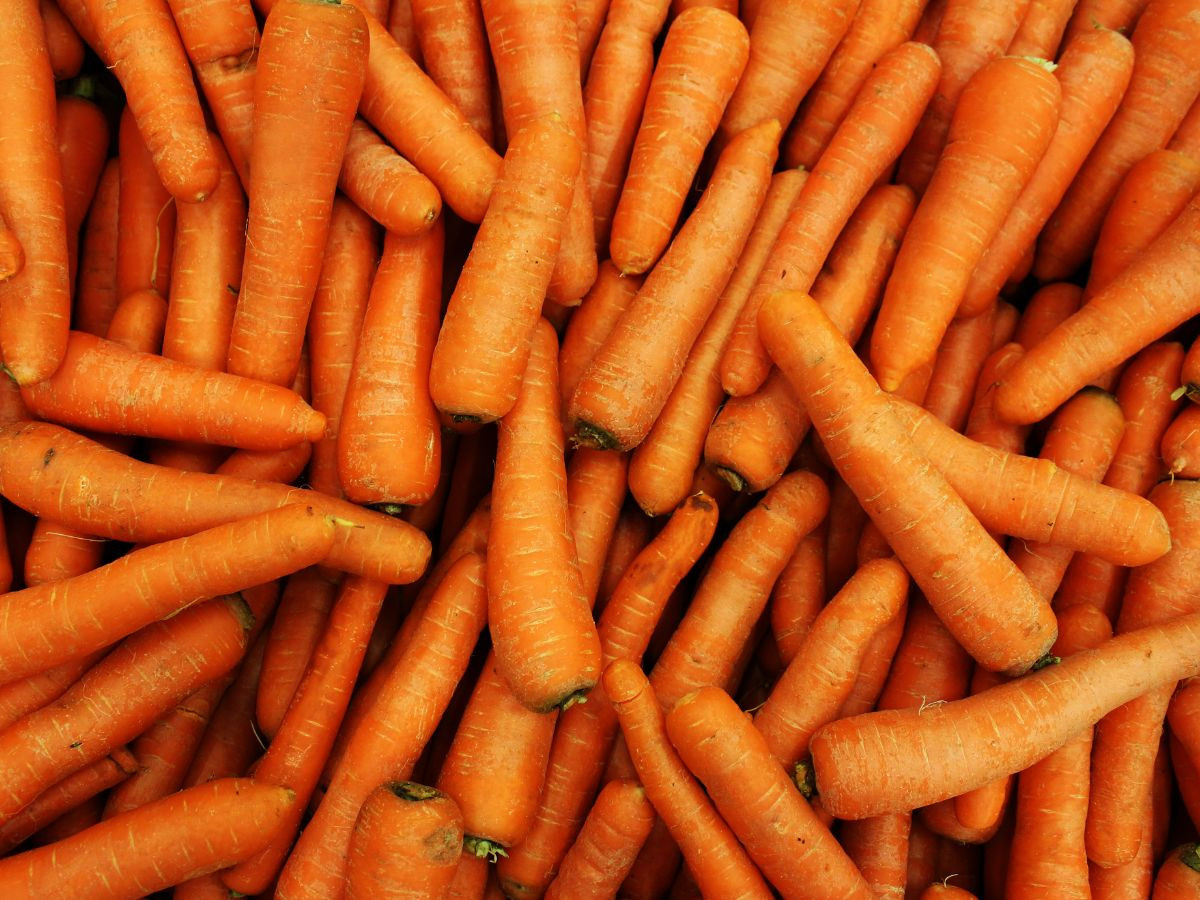
Nutritional Benefits: Carrots are rich in essential nutrients such as beta-carotene (which the body converts into Vitamin A), fiber, potassium, and antioxidants. You might crave or obsess over carrots if your body needs these nutrients.
Taste and Texture Preferences: Carrots’ unique taste and satisfying crunch can be particularly appealing. The sensory experience of eating carrots – the crunch, the sweetness, and even the act of chewing – can be enjoyable and comforting, leading to a preference or obsession with them.
Habit and Familiarity: If you regularly consume carrots, they might become a dietary habit. The human body often craves what it’s used to, especially if just stopped eating carrots or those foods are associated with positive feelings or experiences.
Psychological Factors: Sometimes, food obsessions can be linked to emotional states. For instance, if eating carrots is associated with happiness, comfort, or stress relief, you might be drawn to them more often.
Health-Conscious Choices: If you’re particularly health-conscious, your obsession with carrots could stem from knowing they are a healthy, low-calorie snack. This awareness might make you more inclined to choose carrots over other snacks.
Dietary Restrictions or Preferences: If your diet is limited or restricted (due to allergies, intolerances, or personal choices like veganism), you might rely more on carrots as a safe and satisfying food option.
Conditioned Response: If you’ve experienced positive reinforcement (like weight loss, improved skin, better digestion) after eating carrots, you might develop a stronger preference for them.
What happens when you eat a lot of carrots?

Eating a lot of carrots can have several effects on your body, most of which are beneficial due to their high nutrient content. However, like with any food, excessive consumption can have negative effects. Here’s a breakdown:
Boost in Vitamin A Levels: Carrots are rich in beta-carotene, which the body converts into Vitamin A. This vitamin is essential for good vision, immune function, and skin health. Eating a lot of carrots can ensure you’re getting plenty of this vital nutrient.
Improved Digestive Health: Carrots are high in dietary fiber, which benefits digestive health. A diet rich in fiber can help fiber-rich diet prevent constipation and promote a healthy digestive tract.
Antioxidant Benefits: Carrots contain various antioxidants, which can help combat free radicals in the body, potentially reducing the risk of certain diseases.
Skin Health: The nutrients in carrots, especially Vitamin A and antioxidants, can contribute to healthy skin. They may help reduce the appearance of blemishes and improve skin tone.
However, there are also some potential downsides to consider:
Carotenemia: Consuming large quantities of carrots over time can lead to carotenemia, where the skin takes on a yellow-orange hue. This occurs due to the high level of beta-carotene in carrots. Carotenemia is not dangerous and usually resolves once beta-carotene consumption is reduced.
Nutrient Imbalance: Eating an excessive amount of any single food, including carrots, can lead to an imbalance in nutrients. It’s important to have a varied diet to ensure you get a wide range of nutrients.
Possible Digestive Discomfort: Eating too many carrots can lead to digestive discomfort in some people. This is usually due to the high fiber content, which, in excess, can cause gas, bloating, or cramping in sensitive individuals.
Interference with Medications: If you’re on certain medications, especially those that affect blood sugar levels or blood thinners, it’s important to consider the vitamin K content in carrots. While it’s generally not a concern, in very high amounts, it could potentially interfere with these medications.

